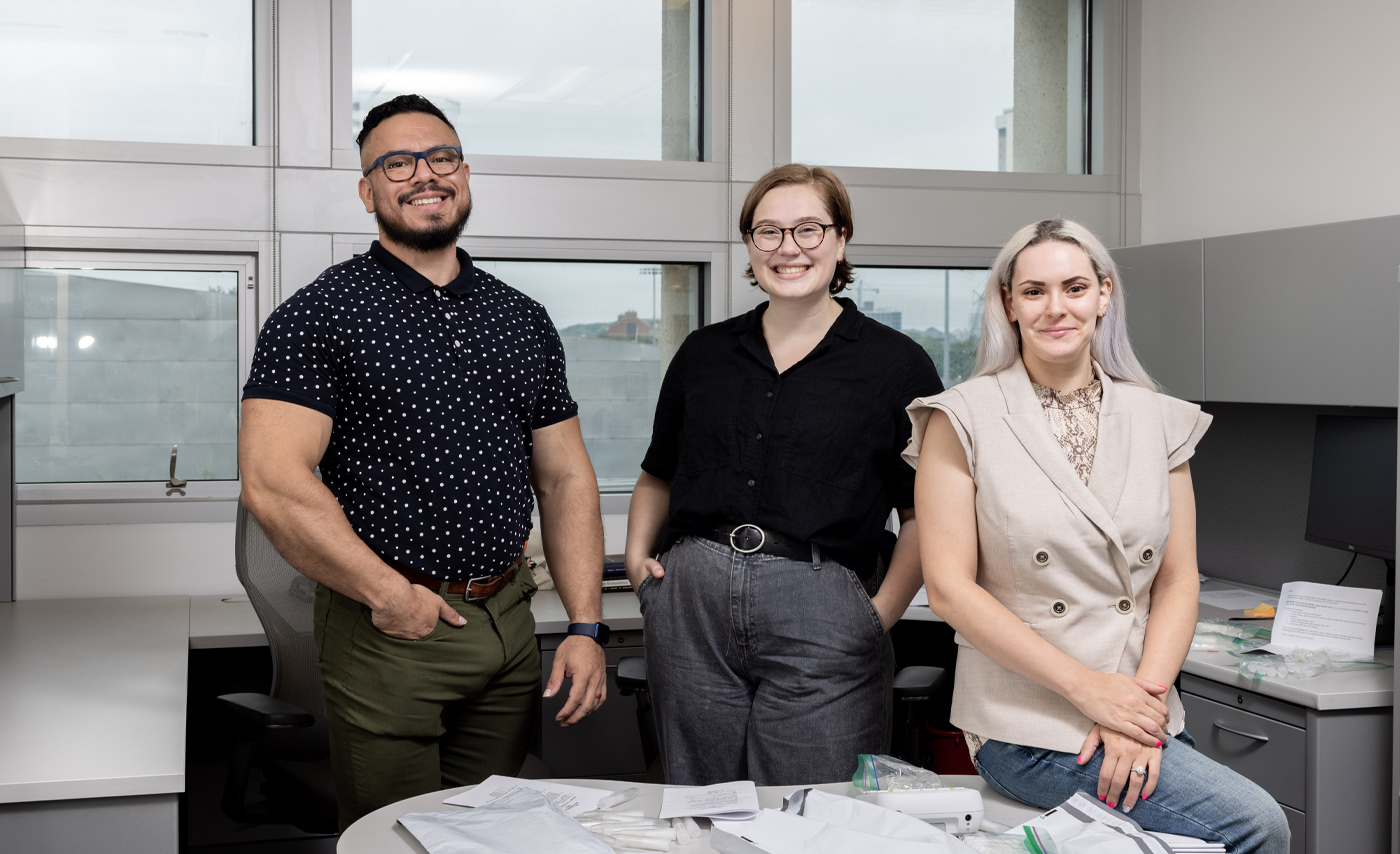Stress, resilience and health disparities
Wilson Figueroa is discovering the link between stress and poor health outcomes in sexual and gender minorities (SGM), particularly the Black SGM community.

When Wilson Figueroa learned Columbus had received a perfect 100 on the Human Rights Campaign’s equality index, he was intrigued.
Is Columbus, or anywhere, truly considered a perfect place to live?
With this in mind, Figueroa decided to build on his past research on sexual and gender minorities (SGMs) to focus specifically on the Black SGM community.
“Sexual and gender minorities are at an increased risk for poor mental and physical health outcomes, especially those who are racial minorities,” says Figueroa, a research scientist in the College of Public Health. “Stress may be a risk factor for those disparities.”
With years of experience in social science and research design, Figueroa created the RISE (Examining Race, gender Identity, and Sexual orientation for health Equity) study to examine the effects of daily stressors in queer persons of color residing in Franklin County.
“The primary goal is to build upon our prior work to establish biopsychosocial profiles of stress and resiliency in an understudied, at-risk population of racially diverse SGM,” Figueroa says. “Ultimately, we hope this is the first step in identifying potential points of intervention to mitigate the association between daily stress (minority stress) and eventual negative health outcomes in SGM.”
To carry out the study in Franklin County, Figueroa has engaged closely with Columbus-area community partners such as Mozaic, a HIV prevention program and community space for transgender, gender non-conforming and non-binary people.
“There’s take, take, take. Sometimes we may see the result of a study, but a lot of times we don’t see anything of value to help our community. Wilson approaches it differently and because of that he’s going to connect better with the community.”
LuSter Singleton, community outreach coordinator at Mozaic, says Figueroa’s approach has been to directly work with Mozaic from the first step to design the study. This isn’t typically the case, according to Singleton.
He says research around the SGM community rarely involves that community through the entire process. It also rarely gives anything of substance back.
“There’s take, take, take. Sometimes we may see the result of a study, but a lot of times we don’t see anything of value to help our community,” he says. “Wilson approaches it differently and because of that he’s going to connect better with the community. It may even help change the climate around people of color being willing to participate more in this type of research.”
This community-led, co-development approach is a central tenet for the Center for Health Outcomes and Policy Evaluation Studies where Wilson is a research scientist.
“It’s very exciting, and I think the feedback we’re going to get is going to be amazing,” Singleton says.
It’s also critical research because there have been few studies on transgender individuals or the Black SGM community in recent years.
“His work is timely and innovative and we really feel this project aligns with our mission to provide evidence-based, high-quality care to an at-risk, vulnerable population,” Singleton says.
The study itself consisted of participants keeping a daily diary and submitting daily saliva samples for a week. The diary served as a way to see the participants’ everyday lives and feelings, and the saliva samples were collected to study the participants’ diurnal cortisol levels, which indicate their stress throughout the day.
This study’s goal is not only to examine the stressors queer POC face, but also their resiliency — specifically, how one’s community and social support can relieve stress. Figueroa hopes this study will further research in this area and help identify points of intervention where stressors can be alleviated.
Following the study, Figueroa plans to follow individuals over time to examine if cortisol dysregulation indeed leads to chronic disease. He’s also hoping future research can “pinpoint the most relevant resilience factors to conduct behavioral interventions with sexual and gender minorities in general, but especially in racially minoritized transgender and gender-diverse individuals to help promote and bolster health.”
The RISE study is a prime example of Figueroa’s research on stress in health and disease outcomes over time. And as a member of a racially minoritized group and of the LGBTQIA+ community, he has often experienced discrimination himself.
It’s what led him to pursue health research on highly vulnerable populations. And now more than ever, he says the research is critical.
“Given the current tense political climate and the ever-increasing discriminatory policies and laws being passed and trying to be passed across the country, it is increasingly important to continue examining the association between minority stress, resilience and health in sexual and gender minorities,” Figueroa says.